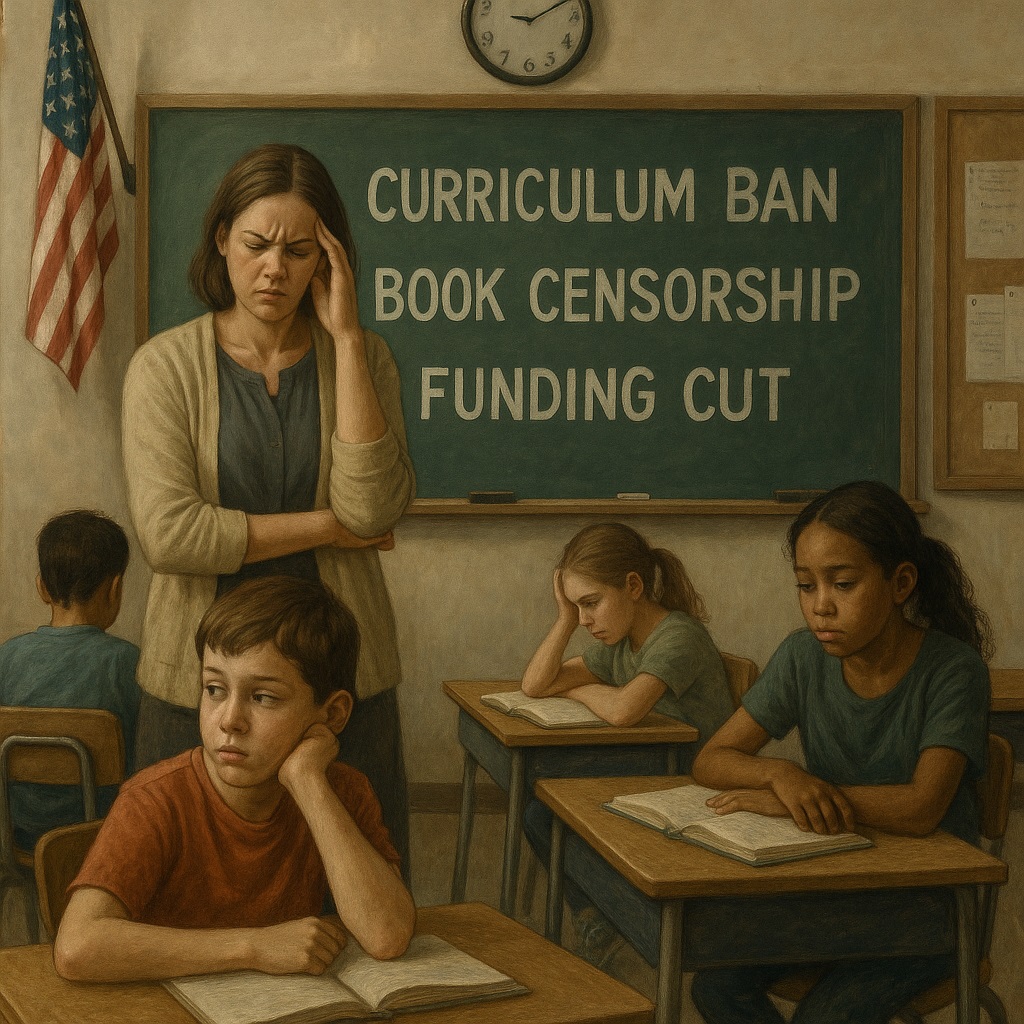
From funding battles to curriculum censorship, political issues in education are disrupting classrooms across America. These debates aren’t just background noise they actively slow progress and reduce educational quality.
As Lonnie Palmer’s book on politics and education explains, policymaking has shifted away from student success toward ideological conflict.
Political Issues in Education That Shape School Funding
State-level ideology often decides how much funding districts receive. Studies show that more liberal states frequently allocate more resources to urban districts and schools with larger Black student populations potentially improving outcomes if managed well.
Local control models, like mayoral leadership in Chicago or New York, can politicize administrative priorities and budgeting decisions. Wikipedia.
Curriculum Censorship and Cultural Politics
Book bans and restrictions on teaching race, gender, or historical topics are becoming widespread. According to the ACLU, these actions erode inclusive learning and weaken students’ critical thinking skills both key components of academic success. American Civil Liberties Union.
How Political Agendas Distract From Learning
High-stakes policies like No Child Left Behind and ESSA tie test results to political priorities. This can cause schools labeled as “failing” to focus on meeting rigid standards instead of fostering real growth.
Representation Without Systemic Change
Research from edworkingpapers.com finds that increased minority representation on school boards can yield modest academic gains for minority students. However, without broader systemic reforms, these changes are too slow to close achievement gaps. edworkingpapers.com.
Moving Past Political Issues in Education to Put Learning First
The political issues in education are deeply connected impacting funding, curriculum, governance, and policy focus. Solving them means:
- Protecting inclusive curriculum from partisan limits
- Allocating funding based on student needs
- Supporting diverse leadership that drives measurable results
Students deserve schools where learning not politics comes first.
Related Reading & Resources
- Politics, Education and the Future of K‑12 – Lonnie Palmer’s analysis of political forces undermining student success.
- School board representation impacts student outcomes – Research finds minority-elected boards slightly improve minority achievement, but changes demand policy follow-through.
- ACLU: What Students Lose When Schools Enter Political Battlegrounds – Reporting on censorship’s negative effect on learning and free expression.
- Funding allocation tied to political ideology – State political leanings influence district budgets and resource fairness.
Read more at Lonnie Palmer
One Response